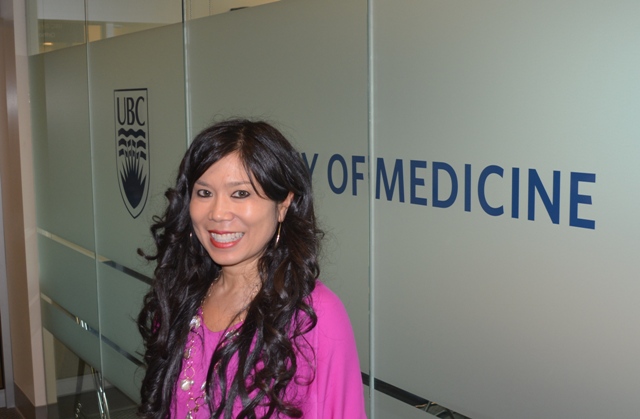 Tricia Tang, Associate Professor in the Division of Endocrinology, has been awarded a major research grant from the Juvenile Diabetes Research Foundation (JDRF) involving the use of Telehealth in Type 1 Diabetes. Professor Tang’s research goal is to design and evaluate a virtual care platform (REACHOUT) for highly trained peer supporters to deliver psychosocial support to adults with type 1 diabetes (T1D) living in rural and remote communities of Interior British Columbia.
Tricia Tang, Associate Professor in the Division of Endocrinology, has been awarded a major research grant from the Juvenile Diabetes Research Foundation (JDRF) involving the use of Telehealth in Type 1 Diabetes. Professor Tang’s research goal is to design and evaluate a virtual care platform (REACHOUT) for highly trained peer supporters to deliver psychosocial support to adults with type 1 diabetes (T1D) living in rural and remote communities of Interior British Columbia.
Among the different psychosocial struggles that patients with diabetes experience, diabetes distress (DD), not depression, is most strongly associated with poor glycemic control. DD refers to the unique and often hidden emotional burdens, relentless worries, and ongoing concerns that are part of the spectrum of patients’ experience when managing this demanding, lifelong disease. Although mental health is the cornerstone of effective self-management, psychological distress is often overlooked in diabetes care. In fact, British Columbia’s (BC) public health coverage fails to cover this patient-identified health priority, only individuals with private insurance or personal means have access to such services.
Given the shortage of diabetes-trained providers practicing in rural and remote settings, T1D adults in these communities have the least access to mental health care. Not only has BC identified mental health care and rural and remote health care services as two of the five provincial health care priorities, but importantly, the Canada Collaborative Mental Health Initiative has also recognized these care gaps across Canada. Accordingly, our proposal aims to use technology and digital health strategies to “drive” an evidence-based DD intervention to those T1D adults in the greatest need. This innovative approach to reach the “hard-to-reach” could be adopted for other vulnerable, high-risk, and geographically marginalized populations in BC and across Canada.
Congratulations Tricia!